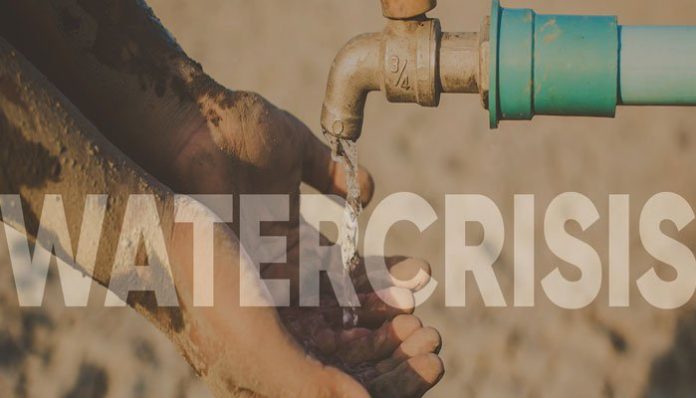Pakistan is facing a severe water shortage. The average reduction of water in the major water stores of Pakistan has been recorded at around 40%. Water reduction in Mangla Dam alone has reached 920% — yes: you read that right.
The Tarbela and Mangla dams are the two biggest reservoirs operational in Pakistan. They have a combined ability to store water for 30 days only. In comparison, the US and India can store their waters for 900 and 190 days, respectively.
Due to a shortage of dams, Pakistan can store only 0.09% of the total water it receives annually. The current environmental conditions are harsh. If a few additional small-scale dams are built, much of the wasted water can be saved. Every year Pakistan is hit with floods. In addition to storing water, sufficient dams could also have saved thousands of affected people belonging in the flooded areas. In particular, this shortage is negatively affecting the lives of people living in the southern regions.
The current wave of water scarcity is not sudden. Successive governments have been warned on multiple occasions about the gravity of the issue. According to a report published by the International Monetary Fund (IMF), Pakistan ranks third in the world among countries facing acute water shortages.
By 2025, the country is expected to reach a record water shortage. To quote the Pakistan Council on Research in Water Resources (PCRWR), Pakistan could “run dry” in less than three years. The extent of the issue is such that, regardless of an individual province’s position on water capacity now, every Pakistani citizen will find themself short on water.
The increasing population has also worsened the water indicators for the future. Pakistan is the fourth largest user of water in the world. The UN estimates that by 2050 the population of Pakistan will reach over 380 million. This will have an exponential effect on water supply, which is already expected to remain below par for the 220 million we are today.
On the one hand, water is getting short, and on the other, the number of consumers is growing rapidly. The population bomb Pakistan is sitting on is arguably the least highlighted problem. With the relevant channelling of the water issue, population explosion should also find an ear of the authorities.
Pakistan is also among the countries likely to be most hit by the looming shadow of climate change. Extremely high temperatures have added fuel to the fire. Ample availability of water is also a necessity to deal with the heat.
The comforting prospect of the mess is that policymakers have finally recognized the economy as a core factor of national security. The first-ever National Security Policy (NSP) of Pakistan declares the economy as one of the main indicators of national security.
However, the architects of the NSP and other policies must link water with economic prosperity. Pakistan’s economy is mostly agrarian. It is now not hard to conceive how closely water and the economy are intertwined. If not coped within time, it will affect big chunks of our economy. Cotton, for example, is a necessary raw material used in the textile industry. Water insufficiency can lead to underproduction which will reduce exports. More rupee devaluation means more inflation.
Similarly, sugar and related crops are highly water-intensive. The country barely meets the challenge of sugar and wheat shortages. One can imagine the scale of crop deficiency and the resultant price hike if the farmlands are not supplied with adequate amounts of water.
If a befitting attitude is applied towards the immediate needs of the country, the subject of water as a determinant of national security can and should find its way up to the higher echelons. Only when this lost cause has found its way into mainstream issues can the next steps be followed. Building dams for preserving water in the ‘off-season’, reforming the incompetent bureaucracy concerned with water, complying with international climate goals, et cetera, are necessary to avoid the haunting circumstances of the near future.
Leaders (read: megalomaniacs) in the upcoming elections should start talking about water scarcity and mismanagement so that this threatening issue is realized on a national level. It is time to do away with dam politics and collaborate for once on the water crisis. After all, the availability of water in Pakistan is no less than a matter of national security.

















